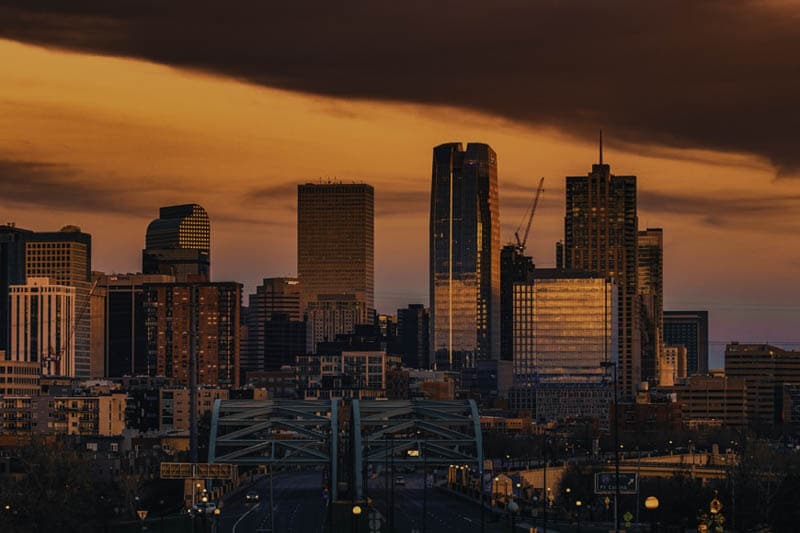Home » Cost Guides » Colorado Cost Guides » How Much Does it Cost to Build a House in Denver?

The finest locations always come with a valuable price, but this price didn’t hinder the growth of the Denver construction market. Despite taking its place in the least affordable housing list, Denver is still one of the fastest-growing cities in Colorado, according to the US Census Bureau. If translated to numbers, the average housing price is about 57% above the national average with an increase of 10% in new home contracts.
With this market overview of the area, developers and individuals have one question: how much does it cost to build a house in Denver?
The Cost of Building a Custom Home in Denver
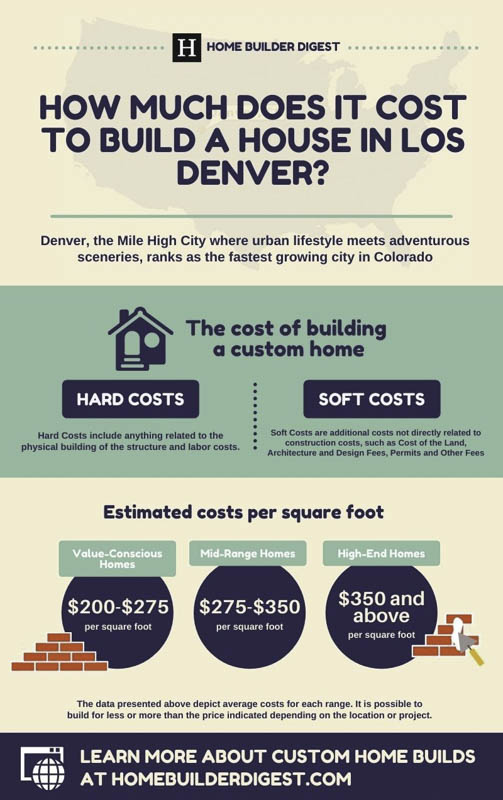
The national average cost of building a home in 2021 lands anywhere between $100 to $200 per square foot, and a more exorbitant home can cost around $200 to $500 per square foot according to This Old House’s report. Denver’s price range per square foot pricing falls within this average national range. In the last few years, a few contractors can recall building 5,000-square-foot homes for only $120 per square foot. However, today, this is nearly impossible because of the natural increase in prices that have also been affected by the pandemic. Since the start of 2020, everything has gone up, from lumber to labor prices.
Although Denver is known as a more affluent city, it still hosts a variety of options for homeowners and new residents. For starters, one can have a value-conscious home built for $200 to $275 per square foot in Denver while the average-sized homes can range from $275 to $350 per square foot. Meanwhile, high-end luxury homes can range from $350 and more per square foot. Overall, since 2018, the value of newly-built homes in Denver have gone from $1,000,000 to $1,400,000 for a 4,000-square-foot home. Despite this increase, many people remain unfazed and still opt to have their homes built in the Mile High City.
With a number of things to consider, you might be wondering which specific costs are needed to complete a home construction in Denver. The step-by-step process of construction begins with land and plan acquisition commonly referred to as the soft costs. Afterwards, the actual construction and installation costs are called the hard costs. Home Builder Digest’s team put together a concise list of hard and soft costs to consider when building a home.
Hard Costs
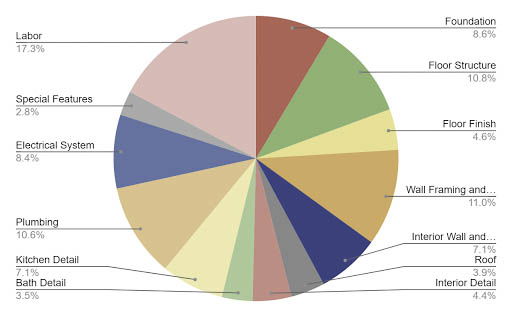
Figure 1. Average cost breakdown of a single-family home constructed in Denver, according to Home Builder Digest.
Hard costs in construction refer to anything that contributes to the physical building of the structure and its corresponding labor costs. According to the national average, a few of the most common costs under this include the foundation, framing, electrical, plumbing, and roofing. In planning and building a safe and durable space, contractors in Denver put great focus on these parts of the construction process:
Foundation: According to ProMatcher, a concrete foundation in Denver starts from $5.89 per square foot, yet this can further range from $5.43 to $6.35 depending on the size and lot location.
Electrical: Electrical wiring services in Denver are estimated to range from $81.88 to $91.09 per hour while Plumbline Services estimated the cost to rewire a Denver home to range from $2,000 to $20,000 [1,500 square feet to 3,000 square feet].
Roofing: The cost of the roofing will depend on the type of service provided by the contractor. For a standard quality roof overlaying the existing roof, the range is anywhere between $163.76 to $266.11 per square foot while a standard quality roof placed after tearing off the existing roof costs between $350 to $800 per square foot.
Plumbing: Plumbing installation is typically priced around $95 to $691 depending on the location and size of the plan. Labor for plumbing installation starts from $69.60 to $82 per hour.
HVAC: According to JD’s Plumbing, HVAC installation in Denver can range from $1,400 for value-conscious homes to $9,200 for high-end custom homes. However, these prices are just an average estimate, because the actual costs will still depend on the brand of AC unit used and the chosen contractor.
Framing: According to homeyou, framing materials range from as low as $3 to $12 or more per square foot based on current material costs like lumber.
Labor: The average pay in Denver ranges from $17.96 to $26.63 per hour. Homeowners can expect to pay laborers around $22,988 to $34,086 for a 2,000-square-foot home.
Others: Other costs for construction include interior details, interior walls, and special features that may cost one to spend around $77,696 and up.
Soft Costs
Soft costs, on the other hand, are the intangible aspects of home construction. These often include designs, land permits, taxes, blueprints, and other fees. It can happen anywhere between the pre to post-construction process, which is why it is important to know them prior to building your home. Although soft costs seem less intimidating than hard costs, these can still cause problems if overlooked. Here are some of the costs you need to consider when building a home in Denver:
Cost of the Land
According to BobVila, the average size of homes in Colorado vary from 2,126 square feet to 2,412 square feet. But what about the land? Over the past few years, people have been looking to buy bigger lots all over Denver. A more spacious lot allows homeowners to spread out, build their work-from-home setups, and build their own gym areas. This puts the typical lot size in Denver around 4,000 to 9,000 square feet. According to Zillow, the average price of land in Denver costs around $62 per square foot and can go up to $111 per square foot. However, in addition to the pure land costs, other costs should be considered, such as connecting to gas lines, city water, and electricity. When buying land in Denver, there are a couple specific things to consider that may affect the cost of the land:
- Is the land zoned for residential buildings?
- Is there an HOA existing in the neighborhood?
- Is the land within city or county limits?
- How accessible is the area from schools, hospitals, and other services?
Architecture and Design Fees
After choosing the land to build your home, it’s important to meet with the best residential architects and designers in Denver. Most of the design will come from the professional architect and engineer you choose to hire. In Denver, architects charge anywhere between $1,125 to $11,259 and more depending on the scope and home design. For a more detailed cost, clients can expect to pay architects anywhere from $112.50 to $137.50 per hour or around $7 per square foot. According to Jackson Design Build, engineers in the city will range from $100 to $200 per hour. After the foundation and exterior have been laid out, interior designers are responsible for tying up the whole look of the home. According to Manta, interior designer fees will land anywhere between $745 to $11,186 or more per project.
The EV Studio team shared their hands-on experience about how architecture firms set design fees. They mentioned that approaches for fee structures include a myriad of ways and that the most tangible and typical is a fixed fee based on a dollar amount per square foot. For value-conscious clients, fees are usually in the $3 to $5 per square foot range, encompassing those with a garage and simple, straightforward additions and homes. For mid-range clients with basic direction for the design, it may cost them $5 to $7 per square foot, and for high-end homes, design fees will range from $7 to $9 per square foot. The clients that pay more are those willing to explore more luxurious designs or are eyeing houses sitting on complex and challenging site conditions.
Other approaches are either complete hourly, or hourly with a max amount plus a percentage of the estimated construction costs–commonly 5% to 12%. Percentage fee contracts are typically broken down into phases: design, construction documents, and bid and observation, says Doug Walter of Doug Walter Architect, whose fees for remodeling run 11% total. “For new homes, being simpler, 9%”, says Walter. The firm provides hourly contracts, for feasibility studies and very small remodel like a kitchen or bath. “For those percentages, expect well-developed interior elevations of all cabinetry and millwork, and a good lighting and electrical plan, as well as 3D perspectives in addition to the usual head-on elevations, to help the client and trades visualize the finished product.”
Permits and Other Fees
Most building projects in Denver require general construction permits and trade-specific permits to allow construction. To apply, one can personally submit plans and applications to the counter or log in for thorough zoning and building code review. Trade-specific permits, such as minor electrical work, replacements, roofing, and siding, can be issued at the Quick Permits counter even without plan review. Licensed contractors can apply online, but homeowners doing their own work should bring a valid photo I.D. for verification. Projects that potentially affect the exterior of a local landmark or historic district property must start their permit application process with Landmark Preservation unless it is a minor interior remodel that doesn’t require exterior modifications.
For affordable housing, the fee is due in full at the time of issuance of the building permit(s). It will be assessed with standard permit fees, and building permits will not be released without fee payment.

Detailed in the table below are fees for building permits which can be paid online or in person.
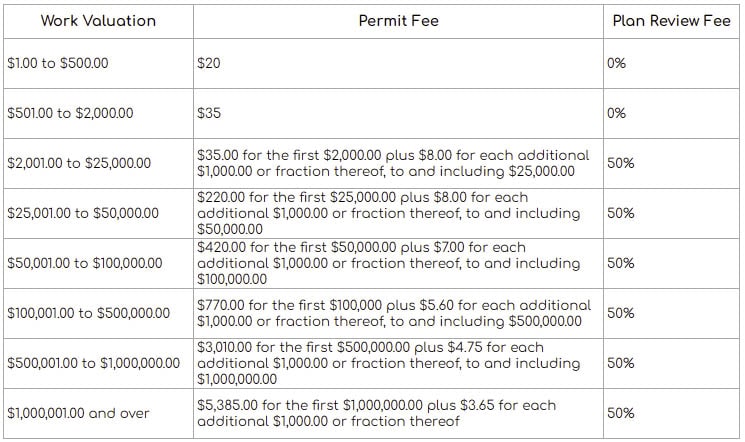
Additional fees for two-phase and three or more phases will be the fee plus 25% and fee plus 50% accordingly. For solar panel or photovoltaic projects, a $50 flat fee applies to the solar panel portion of the project when the additional scope is part of the project. If in any case there is a reduction of fees, this will be applied to the plan review and permit fees.
Plan review for same-day permits of commercial and residential projects will be charged at a rate of 20% of the Permit Fee, with a minimum charge of $100 for all projects valued above $2,000. Reinspection, inspections, and required miscellaneous, non-customary inspections conducted beyond business hours shall be charged at the rate of $100.00 per hour. These inspections shall be pre-paid and incur a two-hour minimum charge.
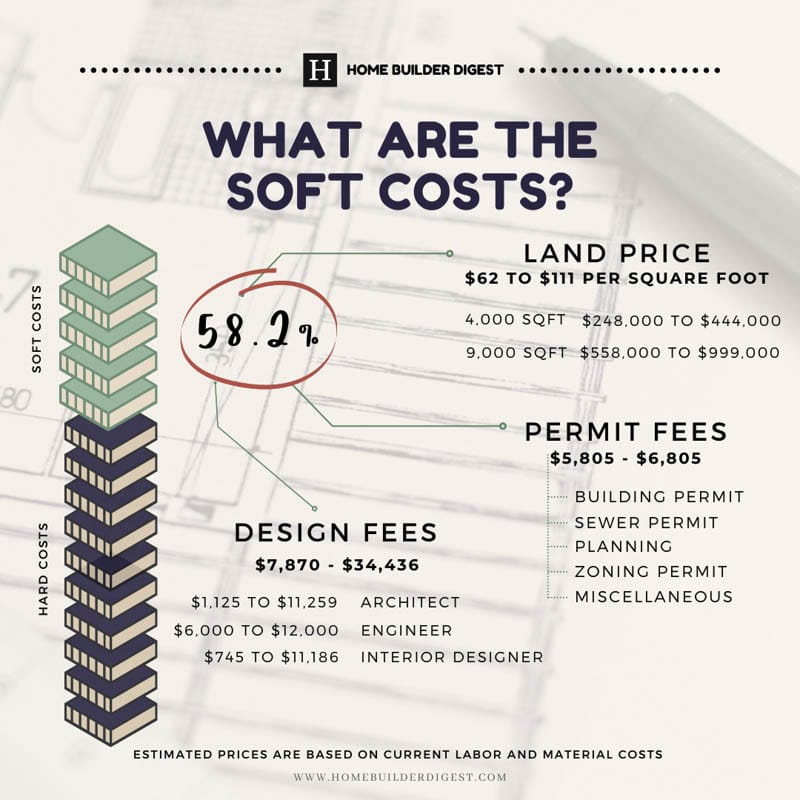
Figure 2. Breakdown of soft costs in Denver, according to Home Builder Digest.
How do the custom home building costs in Denver compare to other cities in Colorado?
From a state-wide perspective, the average cost of building a house in Colorado is $230 per square foot. This includes an estimate of $1 per square foot for framing, $6 per square foot for concrete, and $82 per square foot for trim. Prices can go up, specifically when building a custom home in Aspen, where square foot prices can go as high as $750 to $800, according to Bryan May Architecture. For Summit County, Mountain Living Real Estate stated that for the actual construction, the price per square foot is somewhat close to $300. This price still doesn’t include the land, design, and permits, so home builders can expect to spend $400 or more.
Building a house in Fort Lupton, one of the less expensive areas in Colorado, can start at $165 per square foot. In Boulder, the price per square foot ranges somewhere near the $230 mark. As seen, residential construction costs in Denver sit in the middle of the two polarities. A $275 average price per square foot may sound intimidating at first, but it may be worth the value of living in a good location that offers year-round warm weather and a diverse neighborhood.
Major Custom Home Building Trends Across the Web for Denver
In the past decade, construction cost in Denver has been synchronous with the increase that the national construction cost is experiencing. According to Mortenson Cost Index, the 5% jump for the first quarter of 2021 is the largest single-quarter increase since its commencement. Contributing factors to this increase are the significant drop in construction employment and the overall rise in raw building materials after the supply shortage.
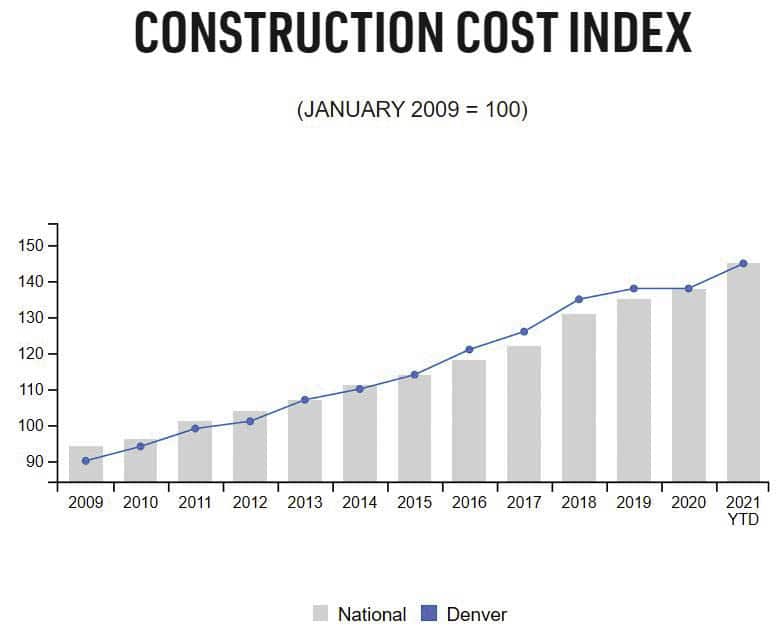
[Report] Q1 2021 Construction Cost Index – Denver.” Mortenson. https://www.mortenson.com/cost-index/denver.
On the graph presented below, we can observe that for the entire 2019 to the first quarter of 2020, construction prices have experienced zero to minimal changes. Major fluctuations occurred in the second quarter of 2020, then continuously increased until the first quarter of this year. Lumber prices have shown the most vulnerability, and this is because it is not just Denver that experienced the effect of this shortage, but the majority of the construction market in the country. Forbes stated that prices of wood products fluctuate more than most goods, as homebuilding is a fast-paced industry. Although wood products are also used in crates and pallets, its largest consumers are still new housing, home repairs, and remodeling. The high costs of lumber and plywood are expected to fall in 2022, then return to their pre-pandemic prices by 2023.
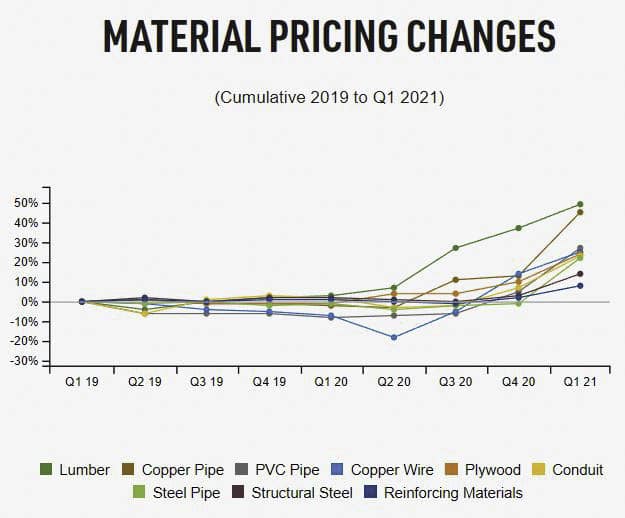
“[Report] Q1 2021 Construction Cost Index – Denver.” Mortenson. https://www.mortenson.com/cost-index/denver.
What Leading Custom Home Builders and Architects that Serve Denver Say
We reached out to home builders and architects serving Denver to obtain in-depth information regarding the costs of residential construction. Home Builder Digest sought the help of Ascent Builder, Revolve Design-Build, Thomas Sattler Homes, Blue Horse Construction, BONSAI Architect-led Design + Build, and Sustainable Design Build in determining the current prices of home construction in the area. Based on their responses, the typical range of value-conscious to high-end custom homes in Denver range from $200 to $450 and more per square foot excluding the land/lot cost. At first glance, these numbers seem pretty big compared to other cities in the U.S. Yet this is justified by the recent price hike for labor and lumber.
According to these builders, over the past four years, material and labor prices have consistently increased. Gabriel Wilson of Revolve Design-Build expressed that this increase has resulted in homes built at a higher cost and longer time period. Trent Minshall of Thomas Sattler Homes further supported this by saying that “The supply chain disruptions have increased lead times and challenged production schedules to stay on track. Material shortages have also impacted production schedules and in some cases limited selection options for some projects.”
Nathan Pacht of Blue Horse Construction followed up by saying that prospective homeowners should also consider the overall fees prior to construction. He mentioned that “Oftentimes we have seen people spend tens-of-thousands dollars and years trying to get all of their design and permitting documents completed on their own only to find out after the fact that they were never even able to afford the home they designed in the first place.”
For an inclusive design package, Mike McCarty of Sustainable Design Build gave estimates for a full design and permit-approved project. For value-conscious homes, the package ranges between $30,000 to $35,000. For mid-ranged homes, the team can start a project from $35,000 to $50,000. Meanwhile, high-end custom homes will start from $50,000 and up. The team added that “Demand is as high as we have ever seen it, in part due to increased home value, low housing inventory levels, and great interest rates. […] Costs in both design and construction have gone up as a response to increased permitting hurdles, excess work in the market, and supply chain issues on many commodities.” Another design-build estimate shared by Josh Oqueli of BONSAI Architect-led Design + Build discussed how a design-build firm keeps project costs lower compared to individual contractors. According to Oqueli, “Because we are both an architecture and construction firm when engaged for full design + build, we can capture synergies and keep our fees low.”
By working with a builder well-versed in design, construction, and documentation, budgeting problems can be often avoided. It is also a good idea to pick a builder who has strong connections in the industry. This will ultimately give an advantage when it comes to material acquisition and lower costs. Lastly, the best tip from these builders is to plan ahead to give builders enough time to finalize and process materials to save time and money.
The Future of Denver’s Residential Construction Industry
Denver’s construction market for 2021 went beyond what the forecast stated and it still expects a 10% growth in the last quarter of the year. One of the major reasons is because of the unexpected growth of the residential sector. As presented in this table by Cumming, the next few years will be the recession for residential construction after having its unexpected peak this year.
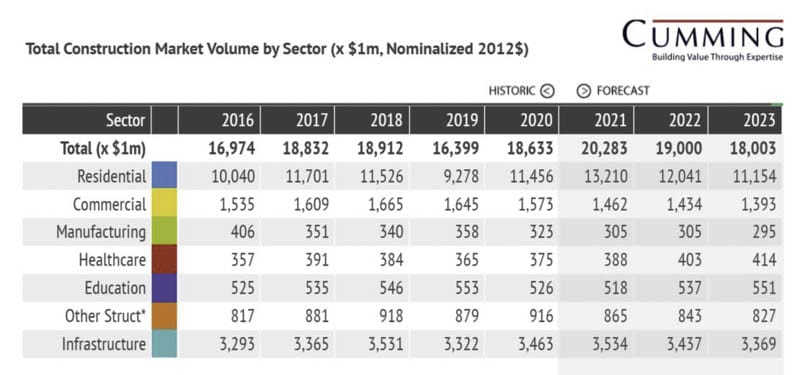
“Denver, Colorado Construction Market Analysis.” Cumming Insights, September 24, 2021. https://ccorpinsights.com/regional/denver/.
Based on the employment growth in the past decade, the number of those making less than 60% of the area median income has significantly shrunk. At the same time, high-earning households making 20% and 61% – 100% more than the area median income have increased. As a result, Denver shifted to a less racially and ethnically diverse, more educated, older, and higher-income earning community.
This early October, Denver published the Expanding Housing Affordability Proposed Policy Approach. It focuses on people making between 51% and 80% of the area median income, aiming to spend public money on housing for people making under 50%. The Proposed Policy offers guidance on upcoming policies and requirements related to affordable housing, which Denver may adopt by the first quarter of 2022. This policy will be a helpful tool in the coming years, considering that housing prices have maintained high pricing.
JD Supra summarizes the key recommendations in the Proposed Policy. It encompasses an increase to the existing linkage fee and mandatory inclusionary housing requirements that include alternatives, such as a two-tiered Fee-in-Lieu structure and the potential for negotiated agreements with the Host Executive Director. This policy is also inclusive of incentives aimed at promoting the construction of affordable housing units, instead of paying the Fee-in-Lieu.
Considering building a home in Denver?
Contact us for a free consultation

